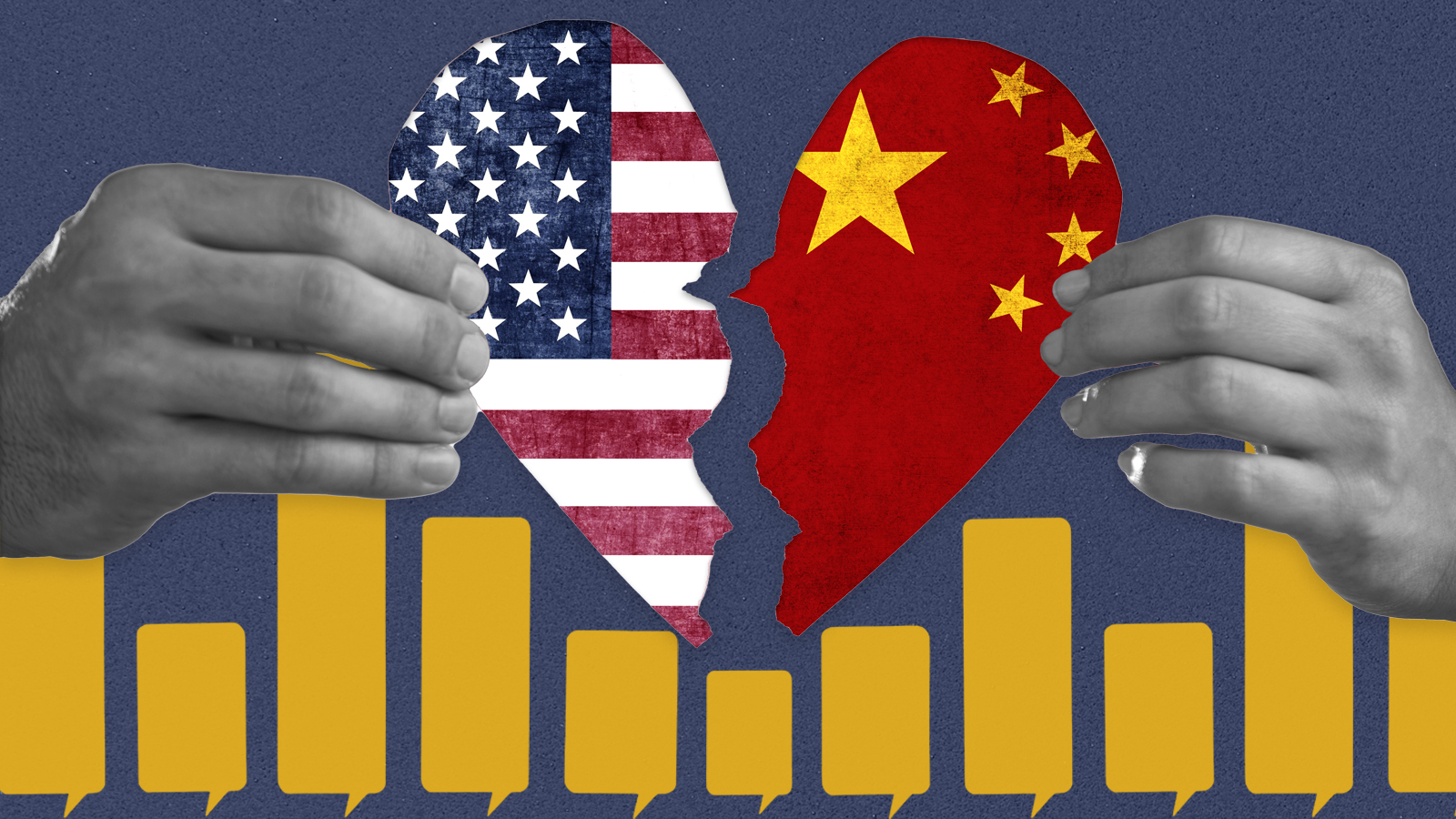- Joined
- Feb 26, 2019
- Messages
- 12,449
- Points
- 113
The U.S. and China want to 'decouple' their economies. Is it possible?
As tensions rise, there is growing talk of a split. But there will be difficulties.

Illustrated | Gettyimages
JOEL MATHIS
APRIL 20, 2023
Tensions are rising between the United States and China, and there is talk of "decoupling" the two countries' economies. But is that a good idea? Christine Lagarde, president of the European Central Bank, doesn't think so. A U.S.-China split, she said Sunday on CBS's Face the Nation, "would lead to less economic growth, less prosperity in the world, more poverty across the world. So I think that this is something that should be by all means avoided."
That decoupling may already be underway, however. Bloomberg reports that while U.S.-China trade hit a record $690 billion in 2022, there are signs "that both the U.S. and China have meaningfully reduced the share of their imports coming from each other." The dollar numbers are large, but Chinese goods made up just 16.6 percent of imports in 2022 — down five percent from 2017. The share of American exports going to China also fell.
Everything you need to know about the fake German heiress that conned New York's elite
0 seconds of 3 minutes, 17 seconds
As China and the United States prepare for a possible war, both sides have their reasons for the decoupling. China has seen how the U.S. isolated Russia's economy following the invasion of Ukraine, so leaders don't want to leave their economy reliant on exports to America. U.S. leaders don't want China to have access to America's most advanced technology if the two countries do end up in a conflict. But a split will have ramifications for the world economy. "Industry is kind of united," Antonia Tzinova, a partner at the law firm Holland & Knight, told The New York Times. "We don't want this."
What do the commentators say?
It's not clear if decoupling is even achievable. "While Western leaders are trying to unpick decades of globalization, Asian nations from Bangladesh and Indonesia to Malaysia and Thailand view China as central to their economic future," James Crabtree writes for the Financial Times. Rather than isolating China, the U.S. effort to decouple "often leaves countries in regions such as south-east Asia more economically dependent upon China, not less." Even companies that have moved their production to other countries still purchase components from China. Real decoupling "is likely to turn out to be much harder than it looks.""Even the closest U.S. ally is never going to cut itself off from China politically or economically," Bilahari Kausikan writes at Foreign Affairs. Few Western countries will be willing to forego the benefits of selling and buying from China, and right now "China has no real alternative but the West for critical technologies and access to important markets." The U.S. and China will compete "robustly," but for the moment they "must accept the risks and vulnerabilities of remaining connected to each other. "
All this decoupling talk may overlook important effects on other countries, Tamás Mészáros writes at The Diplomat. "Decoupling rhetoric masks the fact that the United States and China play very different economic roles in East Asia and possess very different sources of economic power." China is a "key hub" for manufacturing and production across the region, while the United States remains a key market for all those goods — as well as "by far" the largest source of foreign investment. Leaders in Asia "need both great powers to remain engaged in East Asia, and economic realities suggest they would do well to do so."
What's next?
A full decoupling probably isn't in store for the United States and China, unless the two countries go to war. But a "selective decoupling" is "inevitable," U.S. Rep. Mike Gallagher (R-Wisc.) tells Bloomberg. Big companies like Apple and Disney will have to undergo a "complicated and costly" restructuring to ensure that supply chains involving sensitive materials are moved out of China. The U.S. wants to curb investments and sharing of technology in areas such as "quantum computing, bioengineering, advanced semiconductors" that can be used for military purposes.There is more to come. The CHIPS Act passed last year is intended to increase American investment in the domestic semiconductor industry, Asia Times reports, while the Biden administration has set about strengthening export controls for sensitive technologies. One concern for the broader global economy is making sure military-grade technology doesn't get lumped in with civilian-level tech. "If the border is not made clear, the private sector will face huge uncertainties that may shrink trade and investment," Asia Times adds.
As Lagarde's comments suggest, it's not entirely clear that America's closest allies will go along with U.S. efforts at decoupling. Some "derisking" is needed, European Union President Ursula von der Leyen said in a speech recently, but only to a limited extent. "Decoupling is clearly not viable, desirable, or even practical for Europe."
https://theweek.com/economy/1022780/the-us-and-china-want-to-decouple-their-economies-is-it-possible
